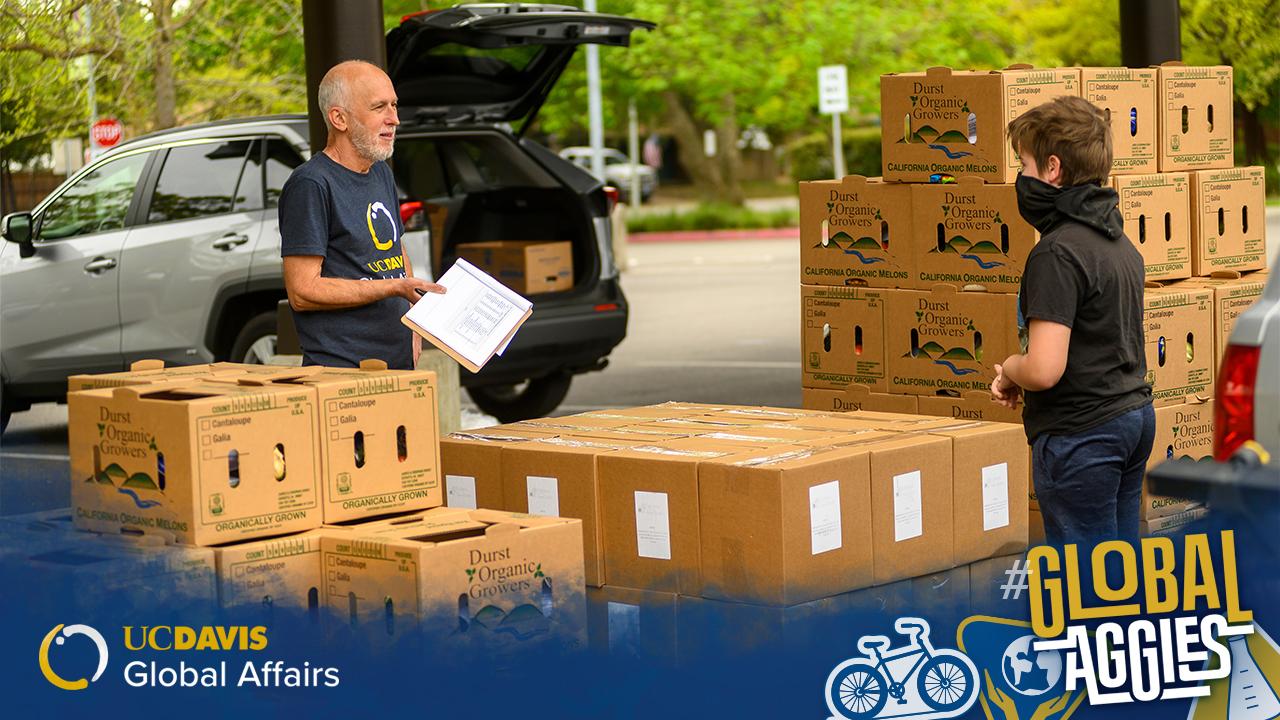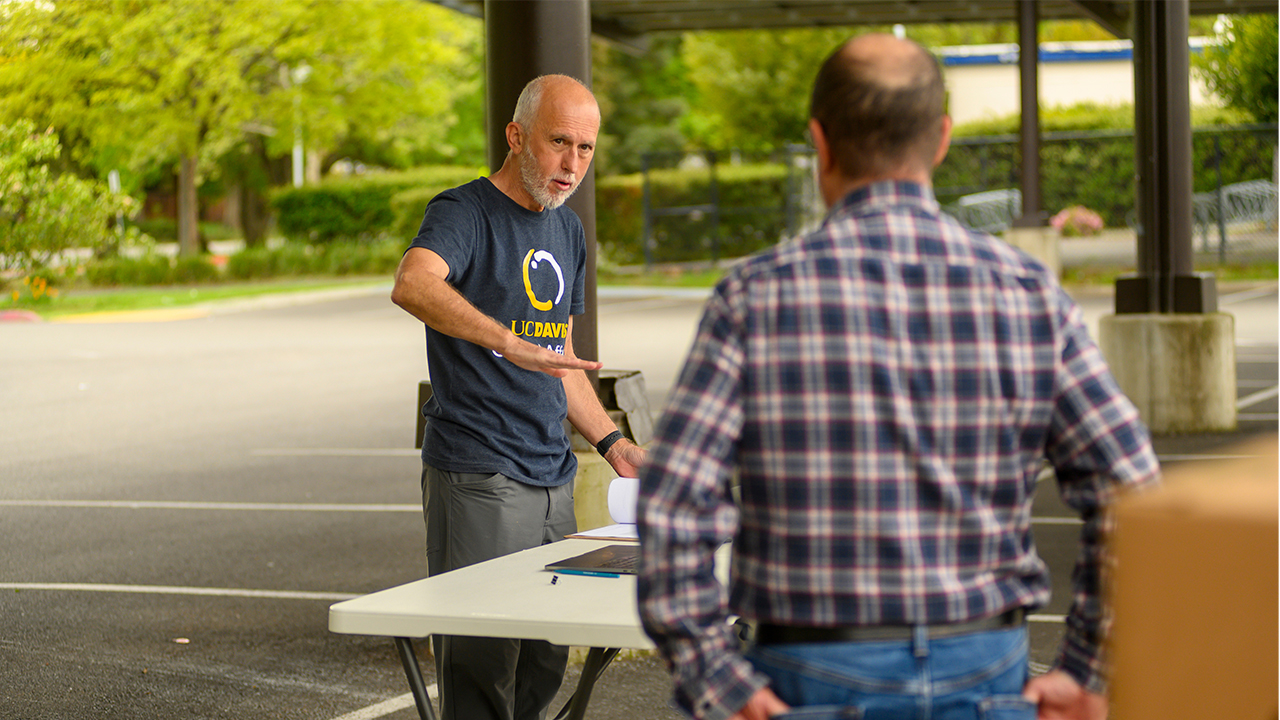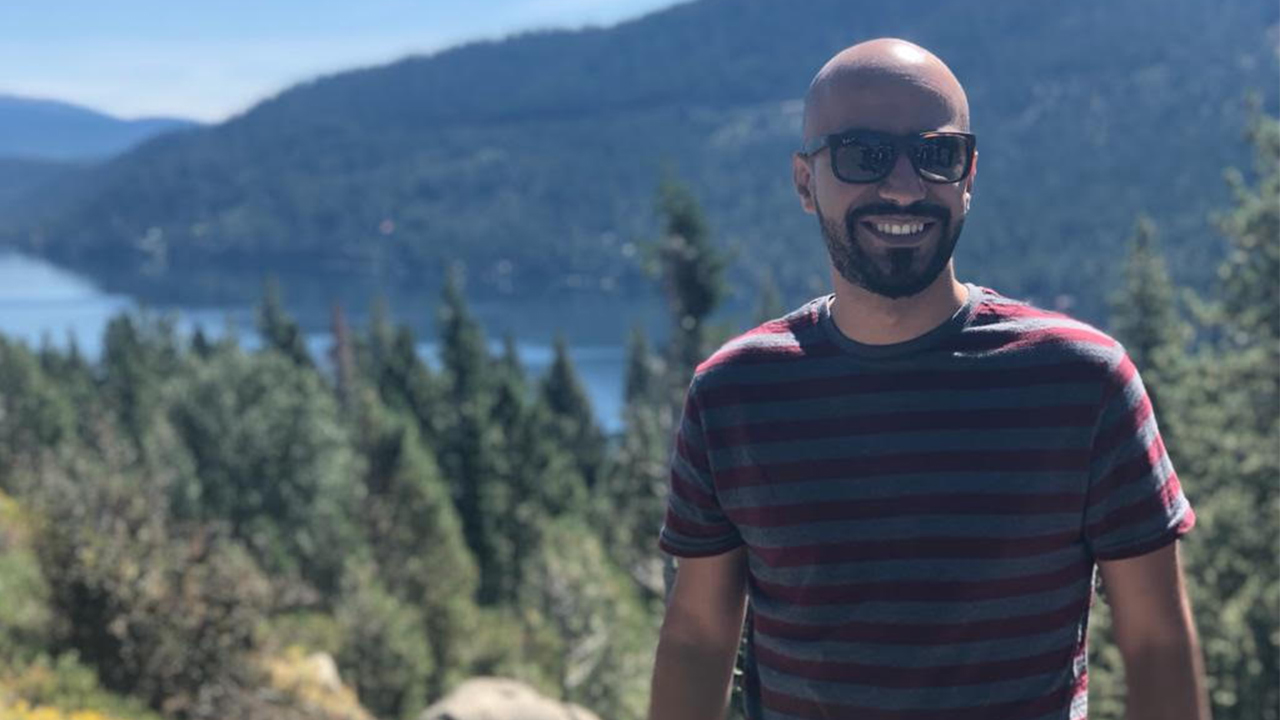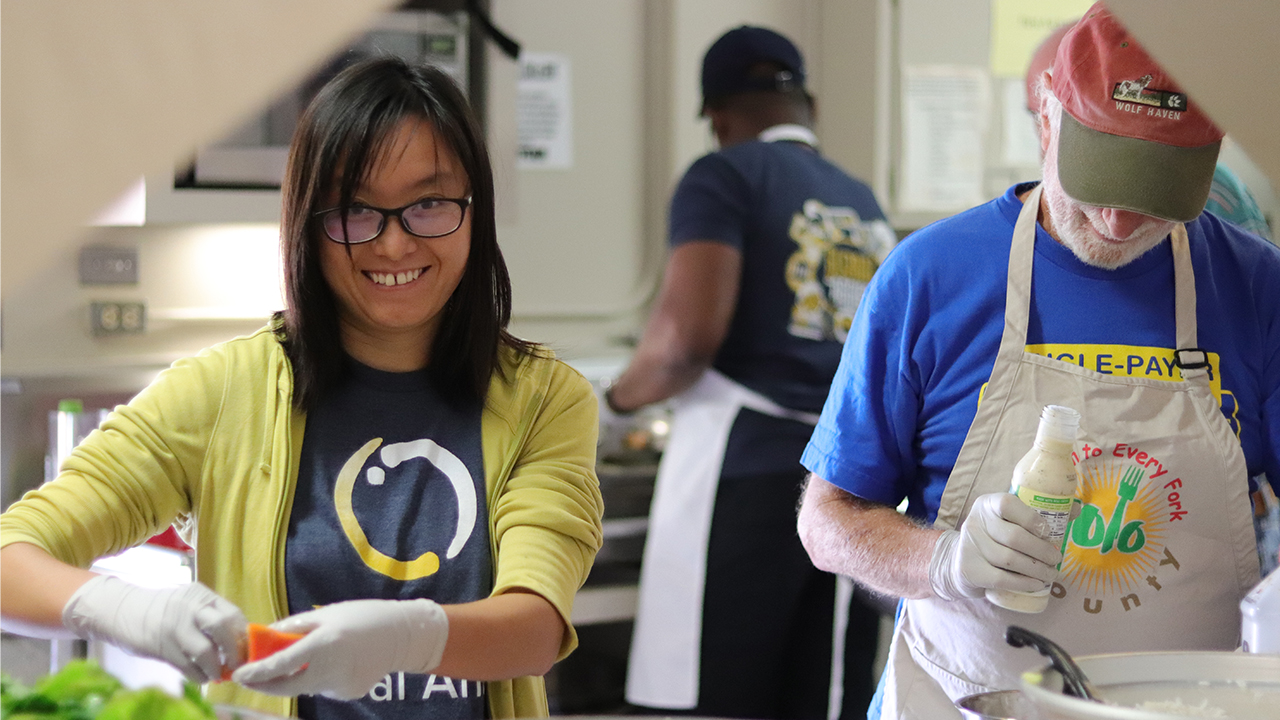
Global Aggies: Thinking Globally and Acting Locally During COVID-19
When the Yolo Food Bank began running a new delivery service to meet the increased need for food in Davis and its surrounding communities in Yolo County during the COVID-19 pandemic, UC Davis delivered volunteers, including staff members, undergraduate students, and visiting Hubert H. Humphrey Fellows Issam Chariag of Tunisia, Fabrice Inkonkoy of the Democratic Republic of Congo, and Zuomei Ning of China.
Finding Ways to Act, Making a Difference
During the onset of the pandemic locally, Robb Davis, former mayor of the city of Davis and director of intercultural programs at UC Davis Global Affairs, took a leave of absence from this campus role to serve as the Yolo Food Bank’s coronavirus response coordinator. His duties included setting up a delivery system and collaborating closely with Yolo County’s GIS team, which supervised the work of the Humphrey Fellows, who were putting their professional skills in geographic information system (GIS) skills to use to support delivery. For Yolo Food Bank, GIS technology enables the tracking of community requests for food deliveries and matches volunteer drivers to those in need, maximizing volunteer drivers’ time and routes to deliver the much-needed food boxes all over the county.

“I am convinced that there is always something to do,” says Chariag, an engineer and project manager for Tunisia’s Ministry of Agriculture, Water Resources and Fisheries. “Even though the situation under the COVID-19 is imperviously difficult, as a volunteer for the Yolo Food Bank I enjoyed finding my way to act.”
Working remotely, Chariag, his Humphrey Fellows peers, and several undergraduate students joined Davis to create an effective delivery plan. As quarantine and shelter-in-place orders became the new normal for the county, Yolo Food Bank was inundated with requests for deliveries.
By managing online GIS applications to help keep track of Yolo County residents who have requested meals from the food bank—and matching them with other volunteers who are delivering meals—these fellows ultimately helped distribute more than 800,000 pounds of food countywide per month.
“My main tasks involved sorting, verifying, and validating the spatial data entered in the database and ensuring that addresses are matching the locations indicated. Being part of a team who has made data storage possible is just tremendous as this data could also be used for further analysis, achieving a higher degree of resilience in the future,” says Chariag.
Thinking Globally, Acting Locally
“What I am learning from this experience is to have a global perspective, given the similar work being done in other countries, but at the same time consider a set of local and regional particularities that need to be achieved, which fits with the ‘thinking globally and acting locally’ concept,” he says.

In Tunisia, notes Chariag, home food deliveries in response to COVID-19 have been conducted by different organizations, and are consequently lacking in comprehensive GIS tracking and recording of these deliveries.
“It will be essential to visualize what has been done in georeferenced maps and layers, as this will facilitate accurate analysis related to more informed decision making,” he says. “My experience with the Yolo Food Bank could be useful for such work.”
Humphrey Fellow Zuomei Ning, who serves as executive director of Snow Alliance, a nongovernmental organization that works in nature conservation and public education in China, has found the volunteer experience with the Yolo Food Bank a great opportunity to become better acquainted with the GIS technology.
“In my work with nature conservation in China, we do a lot of field research, so I want to apply GIS to manage the wildlife data I get in the field,” she says. “This experience also gives me some sense of volunteer participation—I thought it would be hard to divide GIS tasks between so many volunteers, but by working with Yolo Food Bank, I’ve found that’s actually possible.”

From Study Abroad to the Food Bank
Eight of the UC Davis undergraduate students who worked with the Humphrey Fellows used the GIS skills they acquired in the Bhutan summer abroad program GIS in the Land of the Thunder Dragon, instructed by Karen Beardsley, who also serves at the Humphrey Fellowship Program Director in Global Affairs.
To benefit the Yolo County community, students Michelle Ayala, Lily Keene, Sarah Leicht, Hunter Ottman, Shona Paterson, Janelle Setina, Eli Stockwell, and Maya Yoshikawa made a point to put their training into action.
“I first learned about GIS technology after entering the environmental science field at UC Davis, and learning through classes how the technology was being applied to solve environmental problems,” says Peterson.
At the start of summer 2019, Peterson got the chance to intern with a local government agency and use GIS to track storm water infrastructure in support of increased water quality and accountability. Following her internship, she participated in the UC Davis program in Bhutan to learn more about the field by studying the specialized mapping and analytics software called ArcGIS. She utilizes this in her work at the Yolo Food Bank, assigning delivery group numbers to volunteers as well as delivery days to different regions of the county.
“I have most enjoyed the ability to use my skills to contribute in a meaningful way in the midst of the pandemic,” says Peterson. “I hope to soon apply the lessons I have learned beyond UC Davis, using GIS creativity to solve problems and collaborate with people from afar.”
About Global Affairs at UC Davis
Global Affairs brings the world to UC Davis, welcoming more than 10,000 international students, scholars and leaders, and hosting programs that inspire global curiosity, understanding and engagement. Compelled by the valuable outcomes of thinking globally, we make transformative opportunities a reality by supporting the thousands of students and faculty learning and researching internationally—and by facilitating collaborations that tackle the world’s most pressing challenges through more than 150 global partnerships.
Putting our vision of a UC Davis community that engages, thrives, and leads in this interconnected world into action, Global Affairs is in pursuit of an ambitious goal: Global Education for All.